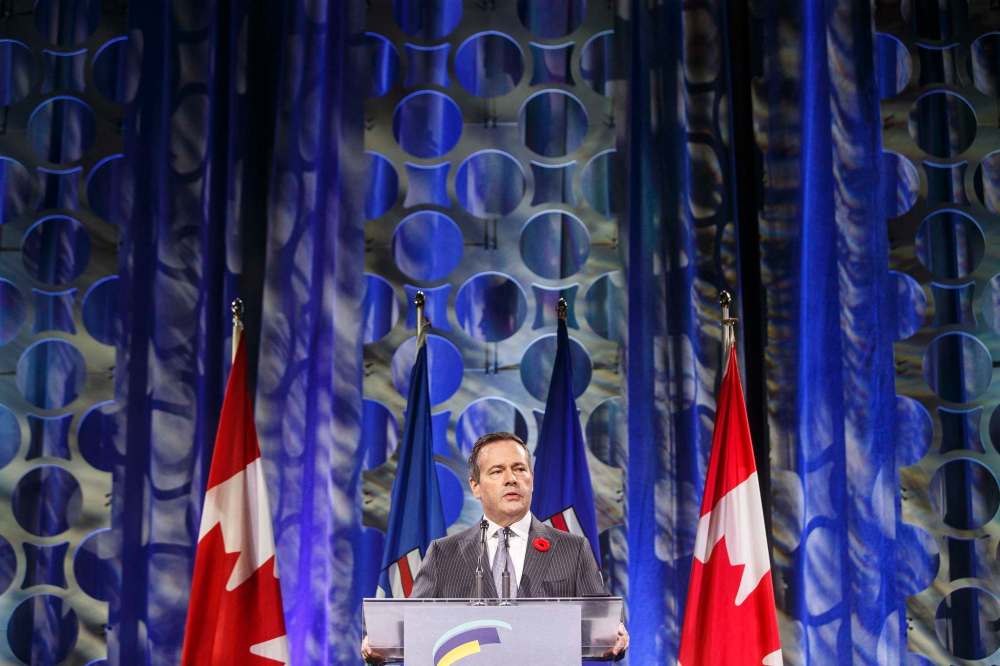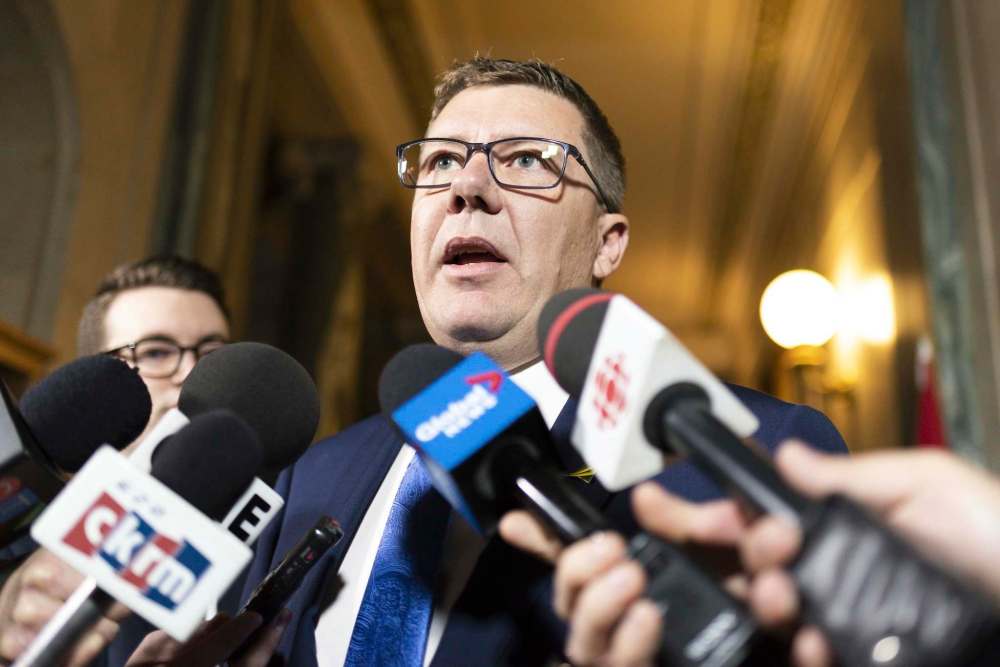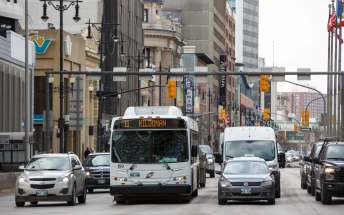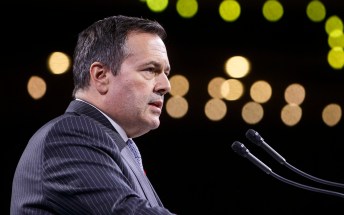Prairie opportunists are knocking and prime minister should answer the door
Read this article for free:
or
Already have an account? Log in here »
To continue reading, please subscribe:
Monthly Digital Subscription
$0 for the first 4 weeks*
- Enjoy unlimited reading on winnipegfreepress.com
- Read the E-Edition, our digital replica newspaper
- Access News Break, our award-winning app
- Play interactive puzzles
*No charge for 4 weeks then price increases to the regular rate of $19.00 plus GST every four weeks. Offer available to new and qualified returning subscribers only. Cancel any time.
Monthly Digital Subscription
$4.75/week*
- Enjoy unlimited reading on winnipegfreepress.com
- Read the E-Edition, our digital replica newspaper
- Access News Break, our award-winning app
- Play interactive puzzles
*Billed as $19 plus GST every four weeks. Cancel any time.
To continue reading, please subscribe:
Add Free Press access to your Brandon Sun subscription for only an additional
$1 for the first 4 weeks*
*Your next subscription payment will increase by $1.00 and you will be charged $16.99 plus GST for four weeks. After four weeks, your payment will increase to $23.99 plus GST every four weeks.
Read unlimited articles for free today:
or
Already have an account? Log in here »
Hey there, time traveller!
This article was published 29/10/2019 (2238 days ago), so information in it may no longer be current.
In preparation for Halloween, Alberta Premier Jason Kenney and Saskatchewan Premier Scott Moe have spent an inordinate amount of time rattling their chains and howling like indignant spirits about the raw deal they are getting from the rest of the country.
In the wake of a federal election in which the governing Liberals failed to elect a MP in either province, Kenney and Moe are summoning apocalyptic visions of secession. We’ve heard a lot of that before but Western separatists, inspired by the Alberta and Saskatchewan first ministers, are warning everyone that this time it’s serious.
Now, before anyone gets too spooked, it’s important to remember that a good politician is — first and foremost — an opportunist. These are the folks with the pure political instinct to recognize a moment in which they can gain the upper hand and then seize on it like a ravenous dog on a bone. Imagine that, and you’ll have a pretty clear picture of what Kenney and Moe are up to.
In short, the two premiers want two big-ticket items from Ottawa.
First, they want more pipelines to move oil to market at a lower cost and greater margin for producers. In so doing, they are essentially demanding Ottawa abandon stricter environmental standards and ignore the right of First Nations people to be consulted.
Neither of those things is likely going to happen.

While roughly half of Canadians support the completion of the Trans Mountain Pipeline, most people want the project to proceed with strict environmental controls and any revenues generated from it to be used for developing renewable energy.
And given that just about every route for every proposed pipeline goes through land in which First Nation people have laid claim, they deserve at least as much consideration as producers. Even if Prime Minister Justin Trudeau were to lose sight of that principle, the courts would not.
The bigger ask from the two provincial leaders is a new equalization formula to ensure that so-called “have not” provinces are not benefiting from revenues generated on oil and gas at the expense of struggling workers in Saskatchewan and Alberta.
Equalization currently takes a portion of federal taxes and redistributes it to provinces with smaller economies to ensure that everyone gets comparable services.
How equalization would be changed is unclear. Moe has suggested that half of all the money set aside for equalization be rebated back to provinces based on population, regardless of the relative size and performance of their economies. That would have an impact on smaller provinces such as Manitoba; the current Progressive Conservative government has received $7.8 billion in equalization alone since it was first elected in 2016.
It’s important to remember that both provinces have gained tremendously from their oil and gas reserves even as other provinces have benefited from equalization.
Moe has not been clear what he and Kenney would do with that money — spend it on programs or offer rebates to individuals — but it would be a hard pill to swallow for the rest of the country and not just because it would mean less in transfer payments to smaller provinces. This plan would effectively mean that people in Alberta and Saskatchewan would be paying less in federal taxes than people in the rest of the country, a policy stance that few federal parties could support.
Is there a realistic opportunity for any of these demands to come to fruition? The Trudeau government is still committed to pipeline expansion but it will not be able to abandon environmental standards or bypass First Nations. Most Canadians would not support those policy changes, and the courts would likely not allow them to come to fruition.
There could be changes in equalization. Liberal Procurement Minister Carla Qualtrough told an Ottawa television network that when it comes to addressing issues of western alienation, “nothing is off the table.” Those are powerful words that suggest that a door of opportunity may indeed have opened for the nation’s two most-prominent opportunists.
Notwithstanding all of the howling and posturing, the Trudeau government needs to reinvent its approach to dealing with the two provinces.

The economies in Alberta and Saskatchewan have certainly fallen on hard times. Oil prices are low, transportation without pipelines is expensive and risky. The future of both provinces, so closely tied to global commodities, is uncertain.
But before too many tears are shed, it’s important to remember that both provinces have gained tremendously from their oil and gas reserves even as other provinces have benefited from equalization.
Alberta and Saskatchewan have among the lowest taxes in the country. Alberta doesn’t even have a sales tax. And on most fiscal markers — particularly on debt-to-GDP and debt per capita — both provinces are more stable and less burdened than all of the others.
This fiscal stability exists even though both provinces are at the top of the table for government spending. Alberta spends the second-most per capita of provinces (behind only Newfoundland and Labrador) and Saskatchewan is neck-and-neck with Quebec for third.
As volatile and fickle as oil and gas may be, both provinces have been handsomely rewarded over the years. That does not mean the country should abandon them. It does mean that any special investment from Ottawa — through equalization or any other program stream — has to be focused on diversifying their economies.
Opportunity is knocking, and not just for Kenney and Moe. There is a clear opening here for Trudeau to reinvent Ottawa’s relationship with the two provinces and make the country better off for the effort.
dan.lett@freepress.mb.ca

Born and raised in and around Toronto, Dan Lett came to Winnipeg in 1986, less than a year out of journalism school with a lifelong dream to be a newspaper reporter.
Our newsroom depends on a growing audience of readers to power our journalism. If you are not a paid reader, please consider becoming a subscriber.
Our newsroom depends on its audience of readers to power our journalism. Thank you for your support.








